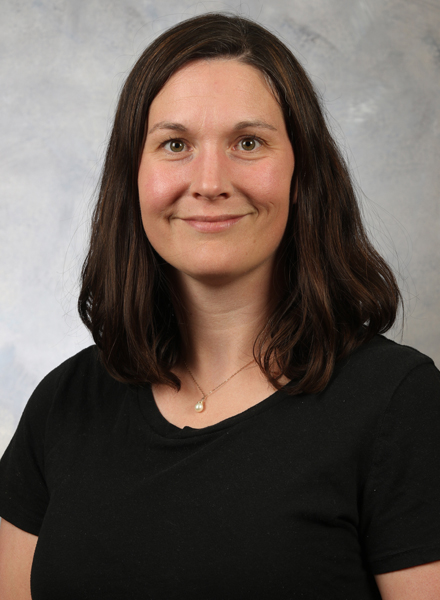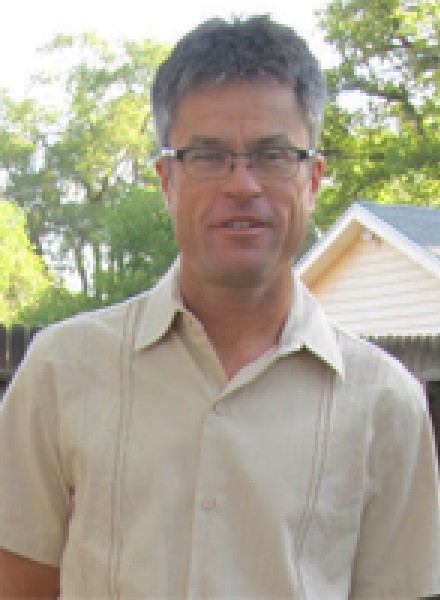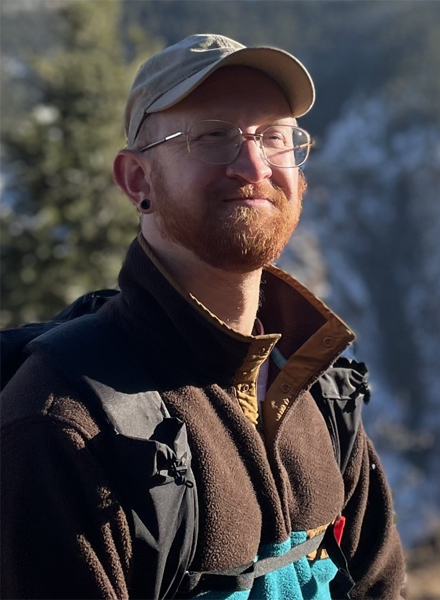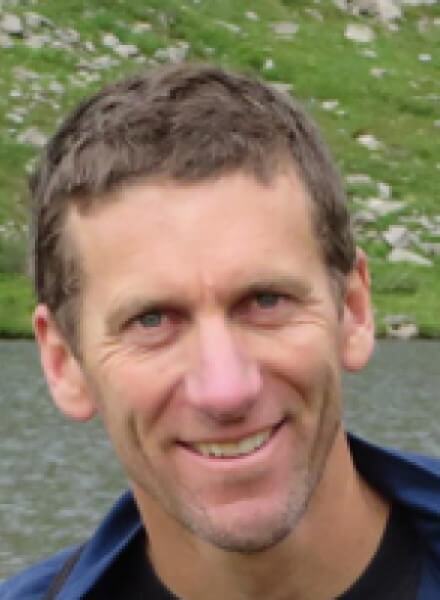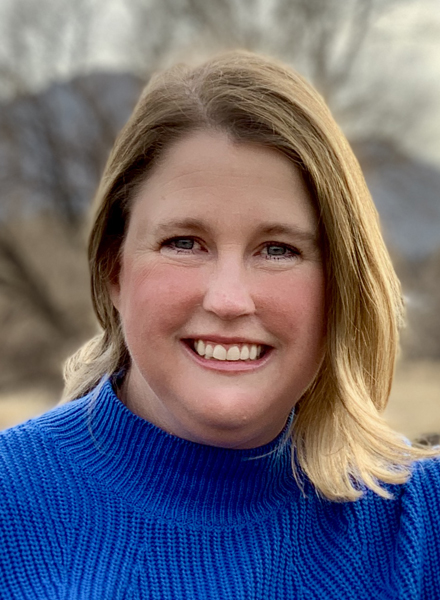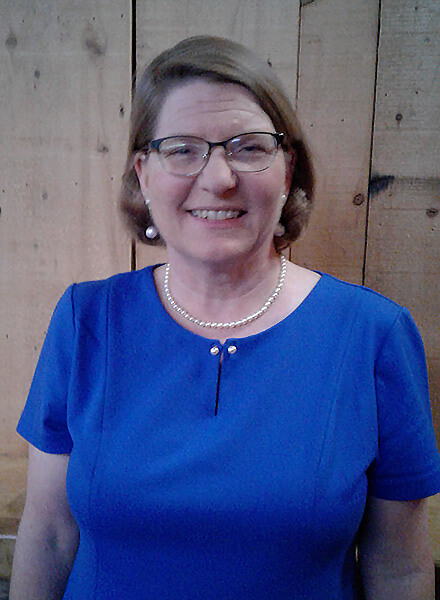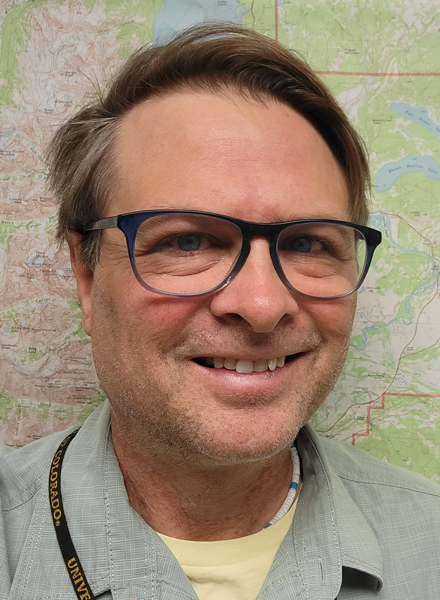
Applied Geography
Master of Arts (MA)- Program Delivery
- On Campus, Online, Hybrid
- Total Credits
- 30 Credits
About the Program
Master of Arts (MA) in Applied Geography
The MA in Applied Geography empowers students to address today’s critical societal issues through focused and impactful geographic research. Our graduates emerge with robust integrative skills that seamlessly connect human activities to natural systems, employing a spatial perspective to analyze both human and natural processes. Through engaging in problem-solving research, students sharpen their analytical abilities, research expertise, and strong communication skills—both written and oral.
Graduates from our MA program advance confidently into careers with public agencies, governmental and non-governmental organizations, or as specialists in information, mapping, and technology across diverse firms. They also excel as geospatial analysts and geospatial project managers. Furthermore, our program serves as a solid foundation for those aspiring to pursue Ph.D. programs in geography or related fields, preparing them for the next level of academic achievement.
Program Director: Dr. Diep Dao (tdao@uccs.edu)
Focus of Study and Areas of Specialization
Students planning to do graduate work in the UCCS Applied Geography Master’s Program must choose one of the following areas of specialization.
- Sustainability Studies
- Applied, Community-Based Research
- Physical Systems
- Geographical Information Science (GIScience)
Sustainability Studies
Sustainability studies integrate knowledge and methodologies from the Sciences, Humanities, and Arts to provide a road map that can be applied to the design, selection, and implementation of sustainable policies, practices, technologies, and strategies. Sustainability Studies provide a dynamic feedback loop of information and practice. The Master of Arts in Applied Geography provides opportunities to explore nature-society relations and social equity issues at a variety of scales.
Applied, Community-Based Research
Students often provide practical and systematic solutions that address one or more of the universal sustainability goals of environmental protection, social equity, and economic opportunity. The context of this research is typically the local community, but students have expanded the scope of their work to include the western US and the US more generally. Some students study Latin America and Sub-Saharan Africa and collaborate with local experts to provide social, economic, and technological solutions for specific problems facing these communities.
Physical Systems
Students conduct research around physical geographic systems to contribute knowledge to disciplines of geomorphology (mountain systems, rock weathering, fluvial systems, hydrology, hazards), weather and climate (weather hazards, micro-climate, meteorological / landscape relationships, climate systems, and climate change, wildland fire regimes), geology (paleontology and geologic hazards), geomorphometry / digital terrain modeling, soils, biogeography, and cryosphere (snow science and glaciation).
Geographical Information Science
Graduate students have the opportunity to specialize in the use of geospatial data and GIScience methods to improve research across social, economic, human-environmental, and physical geographic systems. Recent advancements in GIScience applicable to social and environmental research include geovisualization, web mapping, spatial analysis, modeling, and big spatial data analytics.
Program Admission Requirements
The Master of Arts in Applied Geography at the UCCS has one application deadline*
Fall Semester Deadline: February 1
*Exceptions may be made for Spring admittance (discuss with the Graduate Director)
Benefits of a Fall term start include more options for funding and the sequence of two required courses - we suggest taking GES 5770: History and Nature of Geography in the Fall and GES 5010: Research Seminar in the Spring.
Please note that all applications are now handled electronically, and the application can be accessed here on the UCCS Graduate School website.
Program Coursework Requirements
Graduation Requirements
The Department of Geography & Environmental Studies MA degree requires 24 credit hours of coursework and 6 credit hours of thesis.
All graduate students are required to take:
- GES 5770: History & Nature of Geography (3 credit hours)
- GES 5010: Geographic Research Seminar (3 credit hours)
- GES 5000: Quantitative Methods (4 credit hours). Students who have taken an upper-division statistics course during their undergraduate career may request a waiver for the GES 5000 requirement)
- GES 7000: Master’s Thesis (6 credit hours)
- Students will choose 5000-level courses to complete the remaining credit hours. Students may choose to do up to six credit hours of Independent Study (GES 9600) and up to three credit hours of Professional Experience (GES 4980). A maximum of six credits taught by Graduate Faculty from outside of the GES department may count towards the MA degree.
- Graduate students are required to submit a thesis. To view past thesis projects, click here.
Prerequisite Courses
All entering graduate students are required to have the kind of knowledge presented in the department’s introductory courses. It is the responsibility of the student to obtain this knowledge. Students will work with their advisors to determine the appropriate action needed to fulfill the prerequisites.
Students may gain the required knowledge by formally taking the introductory courses listed below, by auditing the courses, by reading the textbooks, or by any other means agreed to with the graduate advisor.
This knowledge will enhance the student’s ability to perform at the level expected in the GES 5010 research seminar. Students are encouraged to have some background in college math, statistics, and computer skills.
- GES 1000 - Our Dynamic Planet: Climate and Vegetation
- GES 1010 - Our Dynamic Planet: Landforms and Soils
- GES 1980 - World Regional Geography
- GES 1990 - Introduction to Human Geography
- GES 2050 - Digital Earth
The GES degree program curriculum covers various aspects of geography including physical geography, human geography, and geographical information science as well as research methods and tools used in the discipline. Students admitted to the program should discuss a course selection plan with their academic advisor.
Course Offers
Please visit the Academic Catalog
Graduate Faculty & Current Students
Faculty Member | Current Students | |
| Critical physical geography |
|
| Geographical Information Science (GIScience) |
|
| Social and ecological impacts of land use land cover change |
|
| Creating Place |
|
| Nature-Society Relations |
|
| Ecological Restoration, Ethics, and Policy |
|
| Ecohydrology |
|
| Climate Change and Ozone Fluctuation | |
| International Migration Patterns and Processes |
|
| Apportionment and Redistricting · GeoCivics | |
| Geomorphology - rock weathering, mountain systems, snow and ice |
|
| Geographical Information Science (GIScience) | |
PAST STUDENT THESES
Please visit our Graduate Theses page to see previous MA student projects.
Letter to Prospective Students
Dear Prospective Student,
Thank you for your interest in our program. GES graduate students have the opportunity to work alongside our faculty members and develop their interests, career prospects, analytical skills, and communication. Below are answers to common questions:
Why should I pursue a graduate degree? Earning a graduate degree has many benefits. Here are seven potential reasons to earn a Master of Arts in Applied Geography at the University of Colorado Colorado Springs:
- Personal growth
- Greater employment opportunities
- Career advancement
- Possible financial rewards
- Sense of accomplishment
- Greater recognition and credibility
- Preparation for PhD program
How do I know if this is the right program for me? Explore the topics that UCCS Geography faculty address in their research. Identify a potential advisor and contact them with questions.
Can I take classes as an unclassified student? This is an individual choice, and comes with the understanding that admittance to the program is not guaranteed and that tuition dollars are not reimbursed. Generally, we encourage students to follow the stated program requirements, which are available on the website.
Can I complete the program while working full-time? Yes, many students successfully complete their MA degree while working full-time. However, it is important for students to prioritize their studies and the MA program. For those students applying to go to graduate school while remaining in full-time employment, we encourage you to consider carefully how you will ensure balance between your work responsibilities, life, and your graduate studies. Many of our classes are only offered during regular working hours (9am-5pm), are often offered only one day a week, and attendance is required. Students who work full-time will need to work with their employer to ensure they can attend all required class meetings.
How much will the program cost and how do I establish residency? Students must establish residency to ensure proper tuition fees are charged. Information regarding tuition classification and residency requirements can be found on the UCCS Registrar's website.
What kind of financial aid is offered? The UCCS Financial Aid Office assists with student loans, work-study qualifications, and potential student grant money. Information regarding financial aid can be found on the UCCS Financial Aid website. There are many avenues to pursue to supplement or cover educational expenses. There are numerous geography-related firms in Colorado Springs that hire our students. Most will be flexible with work and school schedules, some offer tuition reimbursement, and some have internship programs with our department. Additionally, AmeriCorps provides educational stipends to students. For more information discuss these options with the Graduate Director or other GES faculty members.
What should my personal statement (required as part of your application) consist of? We ask students to address the following three questions in their personal statement: 1) What are your areas of interest and potential research topic? 2) Which graduate faculty do you plan to work with? 3) What past experiences have prepared you for graduate school? 4) How will the GES MA program help you achieve your future goals?
How can I indicate my interest on a study specialization? You indicate your preferred specialization on your graduate school application under the “Area of Specialization” statement, and the decision about whether to accept you to a program is typically made by faculty members in that particular area. The assignment of your initial advisor will also be based on your statement. The recommended format for the “Area of Specialization” statement is to:
- Begin with a paragraph stating your broad areas of interest and then identify potential issues and research focus.
- Include a second paragraph that identifies specific graduate faculty and coursework at UCCS that will help you gain expertise in a specific specialization.
- Conclude with a final paragraph describing how a specific focus will help you achieve future career goals.
We welcome your interest in the Master of Arts in Applied Geography. If you have further questions or concerns, please feel free to contact the Graduate Director.
Scholarships
Students may qualify for a variety of fellowships, scholarships, and grants from the Graduate School. Information regarding funding can be found on the UCCS Graduate School website.
Department Funding
Students may qualify for departmental funding on a competitive basis. Below are current options for funding in the Department of Geography and Environmental Studies:
- Teaching Assistantship: One TA is funded each year on a competitive basis. A call for nominations from faculty is sent out in mid-February for both new and returning students.
- Research Assistantship: A limited number of GES students receive funding from faculty members through research grants in which they are research assistants (RA). This source of income is variable, depending on grants that individual faculty members have at any given time. Please contact whomever you think might be your advisor for information on possible research funding opportunities. Recognize that the availability of these positions varies greatly and is not guaranteed.
- “Women in Geography” graduate scholarships: These scholarships are awarded twice a year on a competitive basis. A call for applications will be sent out to both new and returning students.
- Western State Resident Tuition Classification Program in: Residents from AK, AZ, CA, HI, ID, MT, NV, NM, ND, OR, SD, UT, WA, and WY are eligible to pay in-state tuition rates for the MA in Applied Geography Program. The benefit is automatically applied to qualified students' tuition bills based on their legal residency (more information).
Program Policies & Procedures
Student Handbook and Annual Report Template
GES MA Annual Activities Report Template
UCCS Graduate School Policies and Procedures
Thesis Proposal Presentation and Defense Evaluation Forms
GES Thesis Proposal Evaluation Form
GES Thesis Defense Evaluation Form
Graduating This Semester?
UCCS Application for Candidacy Form
- Follow UCCS Graduate School's guidelines and
- Fulfill the schedule of deadlines for degree candidates
Additional graduate student resources are available on the Graduate School website.
